Intro
Identify Herpes Cold Sore Virus symptoms, including fever blisters, oral herpes, and genital herpes, to understand treatment options and manage outbreaks effectively.
The herpes cold sore virus, also known as herpes simplex virus type 1 (HSV-1), is a highly contagious and widespread infection that affects millions of people worldwide. It is estimated that up to 90% of adults have been exposed to the virus at some point in their lives. The virus can cause a range of symptoms, from mild to severe, and can have a significant impact on a person's quality of life. In this article, we will delve into the world of herpes cold sore virus symptoms, exploring the causes, symptoms, diagnosis, treatment, and prevention of this common infection.
The herpes cold sore virus is a type of viral infection that is spread through skin-to-skin contact with an infected person. It can also be spread through contact with contaminated objects, such as utensils, towels, or lip balm. Once the virus has entered the body, it can remain dormant for long periods of time, only to reactivate and cause symptoms when the immune system is weakened. This can happen due to a variety of factors, including stress, fatigue, illness, or hormonal changes.
The symptoms of the herpes cold sore virus can vary in severity and duration, but they typically include a combination of the following: redness, swelling, and pain in the affected area, usually around the mouth or lips; the appearance of small, fluid-filled blisters or sores; itching, tingling, or burning sensations in the affected area; fever, headache, and fatigue; and swollen lymph nodes in the neck or face. In some cases, the virus can also cause more severe symptoms, such as eye infections, genital herpes, or encephalitis, a potentially life-threatening inflammation of the brain.
Understanding Herpes Cold Sore Virus Symptoms
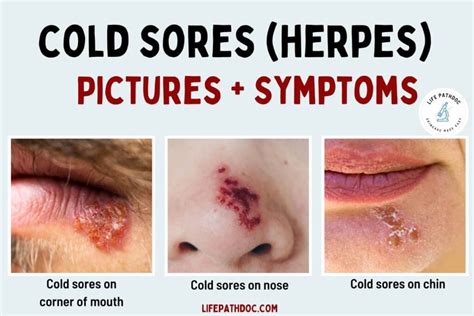
Causes of Herpes Cold Sore Virus Symptoms
The causes of herpes cold sore virus symptoms are complex and multifaceted. The virus is highly contagious and can be spread through skin-to-skin contact with an infected person, as well as through contact with contaminated objects. The virus can also be triggered by a variety of factors, including stress, fatigue, illness, or hormonal changes. For example, people who are experiencing high levels of stress or anxiety may be more likely to experience an outbreak of herpes cold sore virus symptoms. Similarly, people who are run down or tired may be more susceptible to the virus.Diagnosing Herpes Cold Sore Virus Symptoms
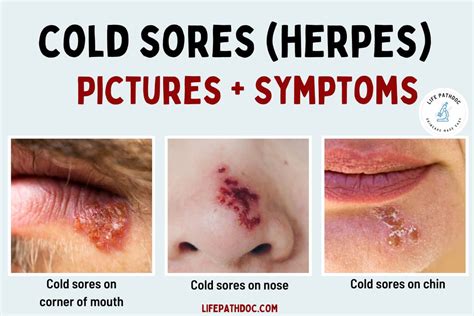
Treatment Options for Herpes Cold Sore Virus Symptoms
Treatment options for herpes cold sore virus symptoms typically involve a combination of antiviral medications, pain relief medications, and self-care measures. Antiviral medications, such as acyclovir or valacyclovir, can help to reduce the severity and duration of symptoms, as well as prevent future outbreaks. Pain relief medications, such as ibuprofen or acetaminophen, can help to manage pain and discomfort. Self-care measures, such as keeping the affected area clean and dry, avoiding triggers, and getting plenty of rest, can also help to manage symptoms and prevent future outbreaks.Preventing Herpes Cold Sore Virus Symptoms
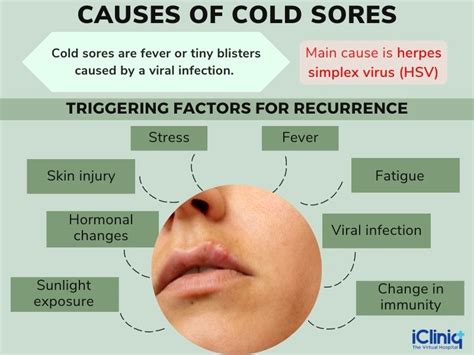
Complications of Herpes Cold Sore Virus Symptoms
Complications of herpes cold sore virus symptoms can be serious and potentially life-threatening. For example, the virus can cause eye infections, such as keratitis or uveitis, which can lead to vision loss or blindness. The virus can also cause genital herpes, which can increase the risk of HIV transmission and other sexually transmitted infections. In rare cases, the virus can cause encephalitis, a potentially life-threatening inflammation of the brain.Living with Herpes Cold Sore Virus Symptoms
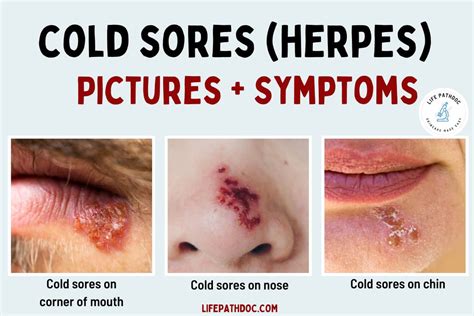
Coping with Herpes Cold Sore Virus Symptoms
Coping with herpes cold sore virus symptoms involves a combination of self-care measures, stress management techniques, and support from friends and family. Self-care measures, such as getting plenty of rest, eating a healthy diet, and engaging in regular exercise, can help to manage symptoms and prevent future outbreaks. Stress management techniques, such as meditation, yoga, or deep breathing, can help to reduce stress and anxiety, which can trigger outbreaks. Support from friends and family can also help to cope with the emotional and psychological impact of the virus.Future Directions for Herpes Cold Sore Virus Symptoms
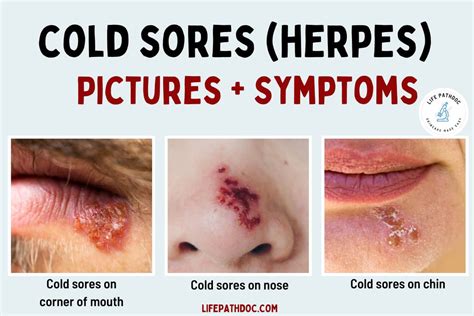
Conclusion and Final Thoughts
In conclusion, herpes cold sore virus symptoms are a common and highly contagious infection that can have a significant impact on a person's quality of life. By understanding the causes, symptoms, diagnosis, treatment, and prevention of the virus, people can take steps to manage symptoms and prevent future outbreaks. Additionally, by practicing good hygiene, avoiding triggers, and taking antiviral medications, people can reduce the severity and frequency of symptoms. We hope that this article has provided you with a comprehensive understanding of herpes cold sore virus symptoms and has empowered you to take control of your health.What are the symptoms of herpes cold sore virus?
+The symptoms of herpes cold sore virus include redness, swelling, and pain in the affected area, usually around the mouth or lips, as well as the appearance of small, fluid-filled blisters or sores.
How is herpes cold sore virus spread?
+Herpes cold sore virus is spread through skin-to-skin contact with an infected person, as well as through contact with contaminated objects.
Can herpes cold sore virus be treated?
+Yes, herpes cold sore virus can be treated with antiviral medications, pain relief medications, and self-care measures.
How can I prevent herpes cold sore virus?
+Herpes cold sore virus can be prevented by practicing good hygiene, avoiding triggers, and taking antiviral medications.
What are the complications of herpes cold sore virus?
+Complications of herpes cold sore virus include eye infections, genital herpes, and encephalitis, a potentially life-threatening inflammation of the brain.
